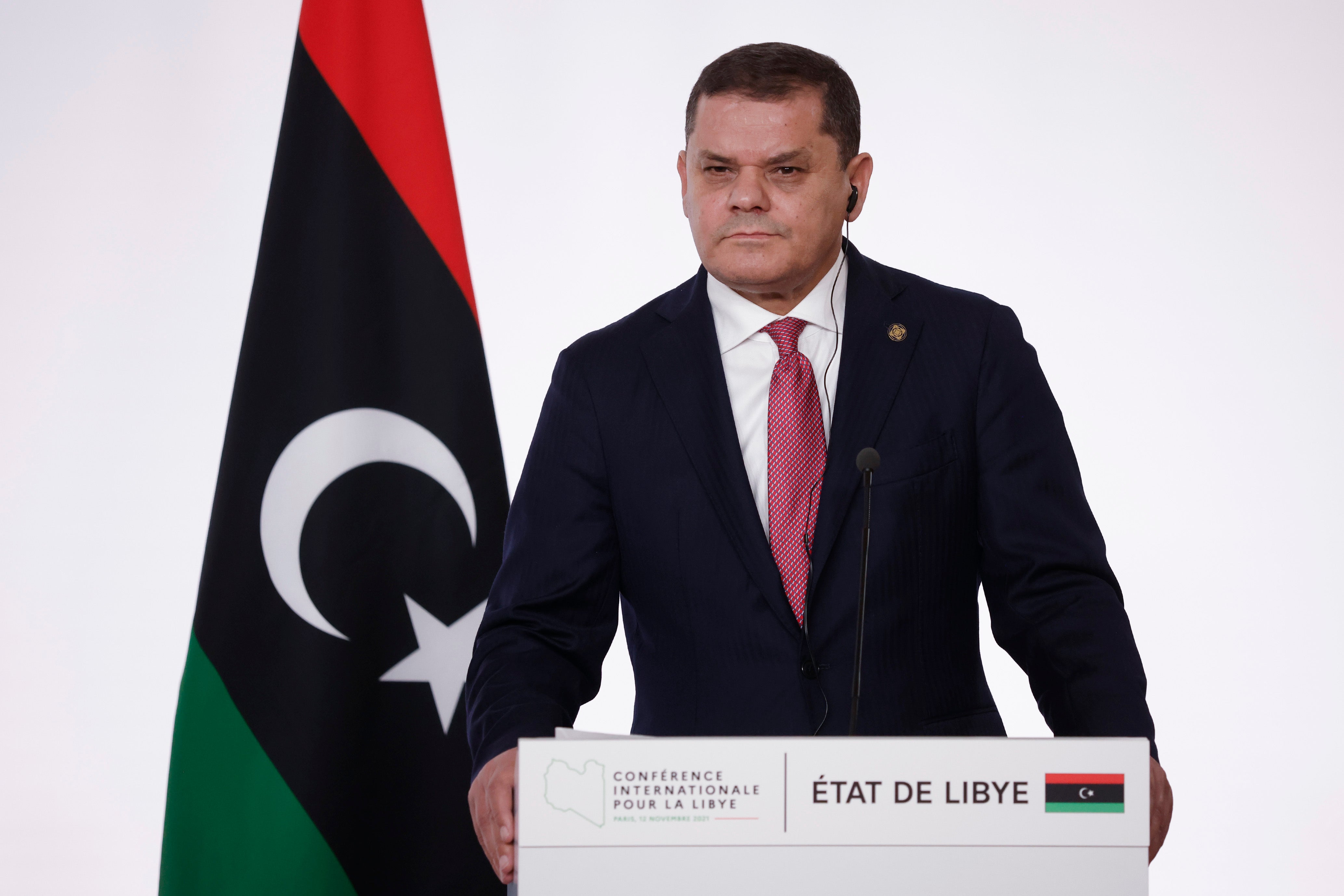Gunmen fire on Libyan PM’s car in suspected assassination attempt
Libya’s interim leader Abdul Hamid Dbeibah escaped the attack unhurt, source says

Your support helps us to tell the story
From reproductive rights to climate change to Big Tech, The Independent is on the ground when the story is developing. Whether it's investigating the financials of Elon Musk's pro-Trump PAC or producing our latest documentary, 'The A Word', which shines a light on the American women fighting for reproductive rights, we know how important it is to parse out the facts from the messaging.
At such a critical moment in US history, we need reporters on the ground. Your donation allows us to keep sending journalists to speak to both sides of the story.
The Independent is trusted by Americans across the entire political spectrum. And unlike many other quality news outlets, we choose not to lock Americans out of our reporting and analysis with paywalls. We believe quality journalism should be available to everyone, paid for by those who can afford it.
Your support makes all the difference.Gunmen in Libya have fired on Prime Minister Abdul Hamid Dbeibah’s car in the capital Tripoli, according to a government source who said it was a clear assassination attempt.
The source said the attack happened as Mr Dbeibah was returning home, adding that the PM escaped unharmed and the assailants fled. The incident has been referred for investigation.
Footage carried by Al Jazeera showed what it said was Mr Dbeibah’s vehicle, which appeared to have a bullet mark on the windscreen and two other marks on a headlight and the chassis.
If confirmed, an attempt to assassinate Mr Dbeibah could aggravate the crisis over control of Libya after he said he would ignore a vote scheduled by the eastern-based parliament later on Thursday to replace him.
Armed forces have mobilised more fighters and equipment in the capital over recent weeks, raising fears the political crisis could trigger fighting.
Libya has had little peace or stability since the 2011 Nato-backed uprising against Muammar Gaddafi, and it split in 2014 between warring factions in east and west.
Mr Dbeibah was installed in March as head of the UN.backed Government of National Unity (GNU) that was meant to unify the country’s divided institutions and oversee the run-up to an election in December as part of a peace process.
Rival factions have been jostling for position after the election process fell apart amid disputes over the rules, including over the legitimacy of Mr Dbeibah’s own candidacy for president after he pledged not to run.
The parliament, which mostly backed eastern forces during the civil war, has declared the GNU invalid and will hold a vote on Thursday to name a new prime minister to form another government.
Dbeibah said in a speech this week that he would only hand over power after an election and the UN’s Libya adviser and Western countries have said they continue to recognise the GNU.
The parliament said this week that no elections would be held this year, after it and another political body amended the country’s temporary constitution, dismaying the many Libyans who had registered to vote.
The parliament’s move to choose a new prime minister may lead to a return to the situation before Mr Dbeibah’s unity government was installed, with parallel administrations seeking to rule Libya from different cities.
However, analysts say that may not immediately trigger a return to civil war
Reuters



Join our commenting forum
Join thought-provoking conversations, follow other Independent readers and see their replies
Comments